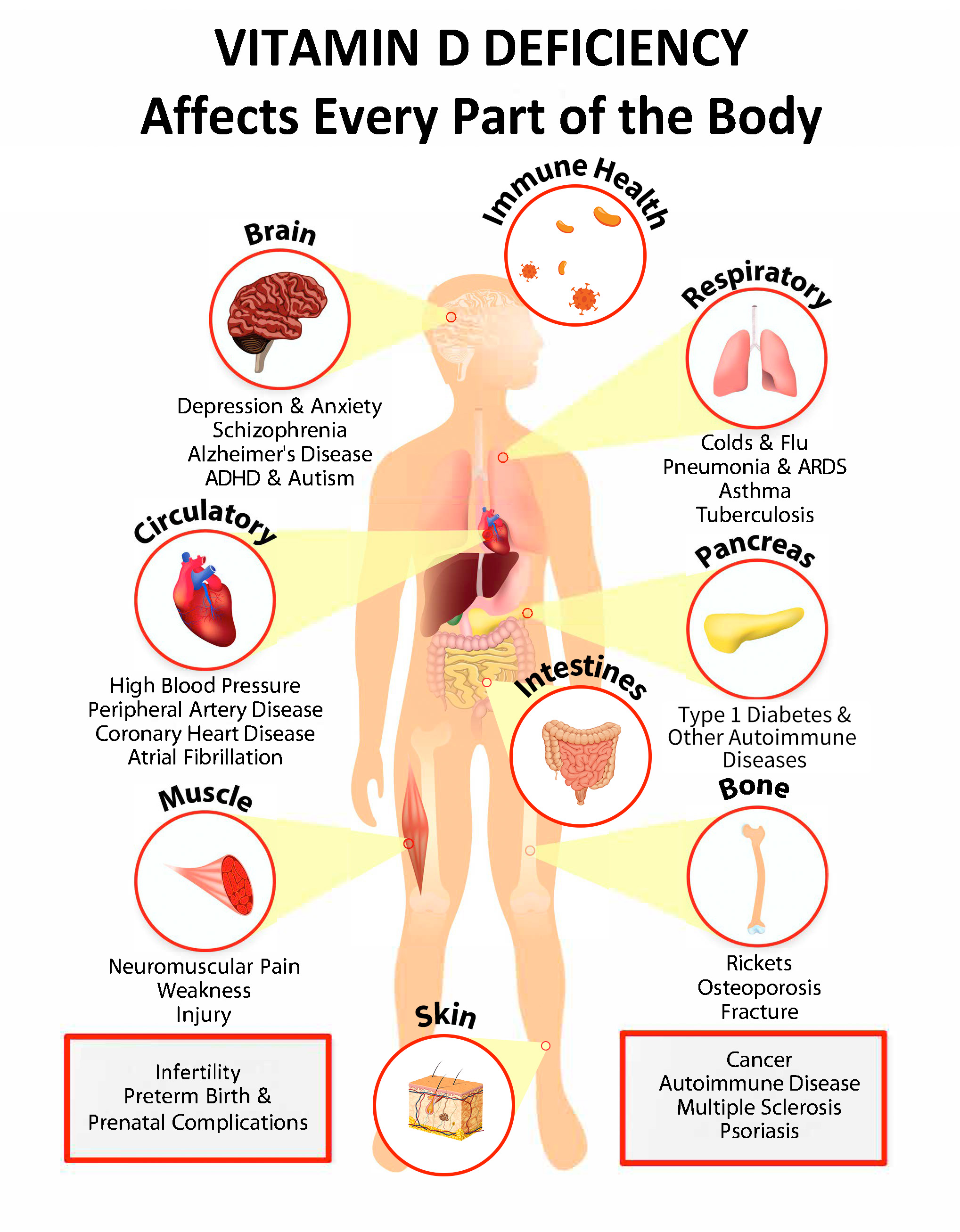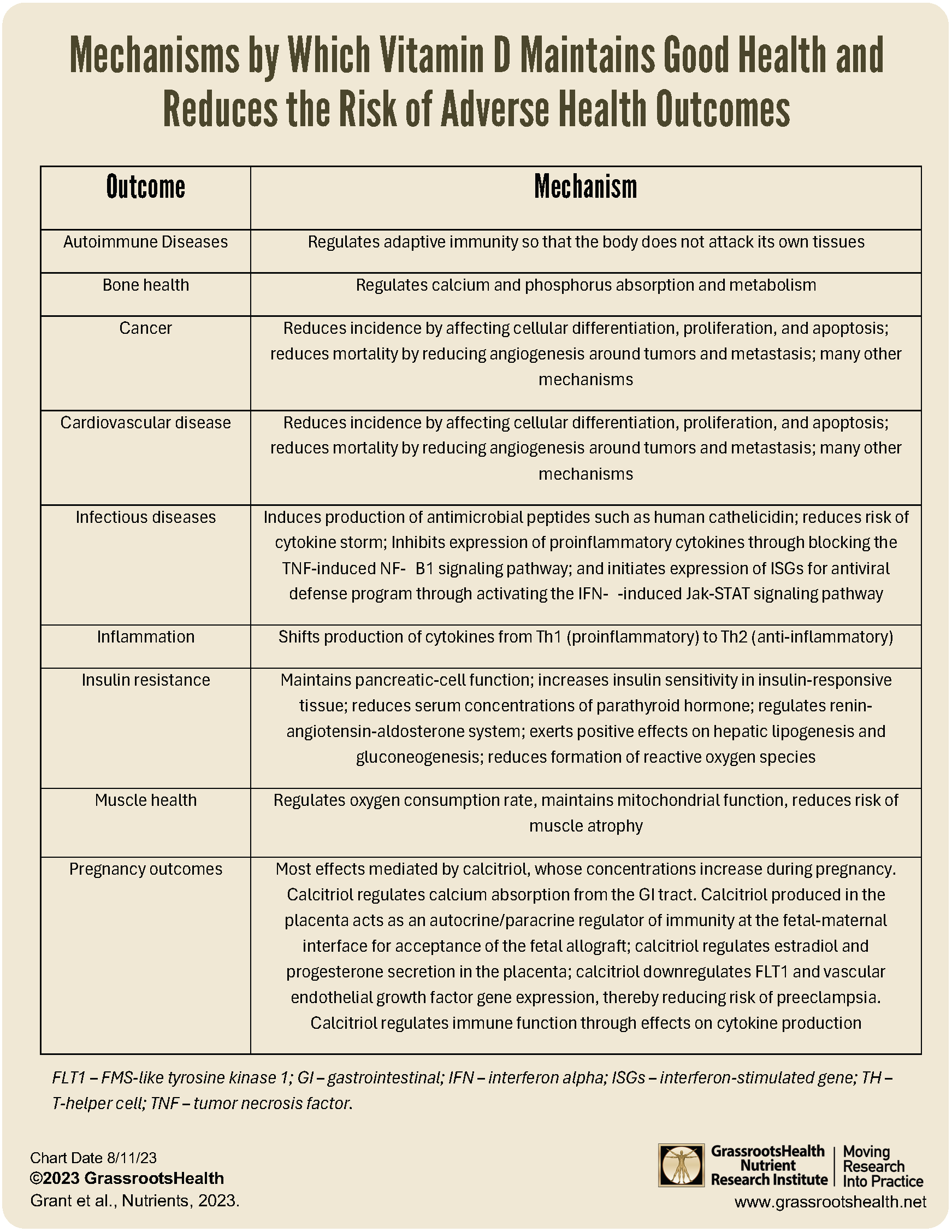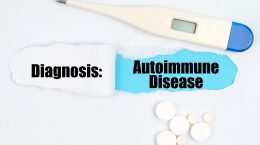Published on August 13, 2023
A review of the many mechanisms by which vitamin D maintains overall good health and reduces the risk of multiple adverse health outcomes.
Key Points
- In addition to its role in bone health, vitamin D supports immune function, helps regulate cell growth and differentiation, and plays a role in reducing inflammation; adequate vitamin D levels have been associated with a lower risk of various chronic diseases, including certain cancers, cardiovascular disease, dementia and cognitive decline, respiratory infections, diabetes, autoimmune disorders, and many others
- A review by Grant et al. listed several mechanisms by which vitamin D is capable of affecting such a wide variety of health outcomes beyond bone health, including autoimmune diseases, cancer, cardiovascular disease, infectious diseases, inflammation, insulin resistance, muscle health, and pregnancy outcomes
- Vitamin D deficiency affects every part of the body; use our interactive PDF to learn more
 The needs and actions of vitamin D go well beyond bone health. Unfortunately, there are still times that we run across an article or response that claims that vitamin D is only necessary for bone health, while discounting its many other health effects.
The needs and actions of vitamin D go well beyond bone health. Unfortunately, there are still times that we run across an article or response that claims that vitamin D is only necessary for bone health, while discounting its many other health effects.
Research over the past several decades has shown that vitamin D is important to many biological pathways in the body. In addition to its role in bone health, vitamin D supports immune function, helps regulate cell growth and differentiation, and plays a role in reducing inflammation. Adequate vitamin D levels have been associated with a lower risk of various chronic diseases, including certain cancers, cardiovascular disease, dementia and cognitive decline, respiratory infections, diabetes, autoimmune disorders, and many others.
A recent paper by Grant et al. reviewed the shared risk factors between periodontal disease and other systemic, chronic diseases and adverse health conditions. The paper concluded that low vitamin D status was a strong risk factor for each of these adverse health outcomes, and also the easiest to address.
How Can Vitamin D Affect Our Health in so Many Different Ways?
Included in this review was a list describing the mechanisms by which vitamin D is capable of affecting such a wide variety of health outcomes beyond bone health, including autoimmune diseases, cancer, cardiovascular disease, infectious diseases, inflammation, insulin resistance, muscle health, and pregnancy outcomes.
Vitamin D Affects Every Part of the Body
The list above is only a sample of the wide variety of actions that vitamin D has within the body.
Vitamin D is needed by virtually every cell in the body and is essential for hundreds of processes each and every day. It acts as a protector and regulator of all cell types, tissues, and organs, it can enhance the functioning of each system of the body to help keep us healthy. A deficit in vitamin D can lead to impairment or disease in each of these systems – from brittle bones to heart disease, cancer, and dementia.
 Click to Access the Interactive PDF or to Enlarge & Print
Click to Access the Interactive PDF or to Enlarge & Print
With this in mind, why take a chance at being deficient in vitamin D?
Getting Enough Vitamin D is Essential to Your Health
Measure your vitamin D levels at home as part of the D*action project! To know if you are getting enough, make sure you test today!
You can also measure your:
- Vitamin D
- Magnesium PLUS Essential and Toxic Elements
- Omega-3 Fatty Acids
- hsCRP
- HbA1c
- TSH
- Type 1 Diabetes Autoantibodies
Did you know that each of the above can be measured at home using a simple blood spot test? As part of our ongoing research project, you can order your home blood spot test kit to get your levels, followed by education and steps to take to help you reach your optimal target levels. Start by enrolling and ordering your kit to measure each of the above important markers, and make sure you are getting enough of each to support better mood and wellbeing!
Create your custom home test kit today. Take steps to improve the status of each of these measurements to benefit your overall health. With measurement you can then determine how much is needed and steps to achieve your goals. You can also track your own intakes, symptoms and results to see what works best for YOU.







